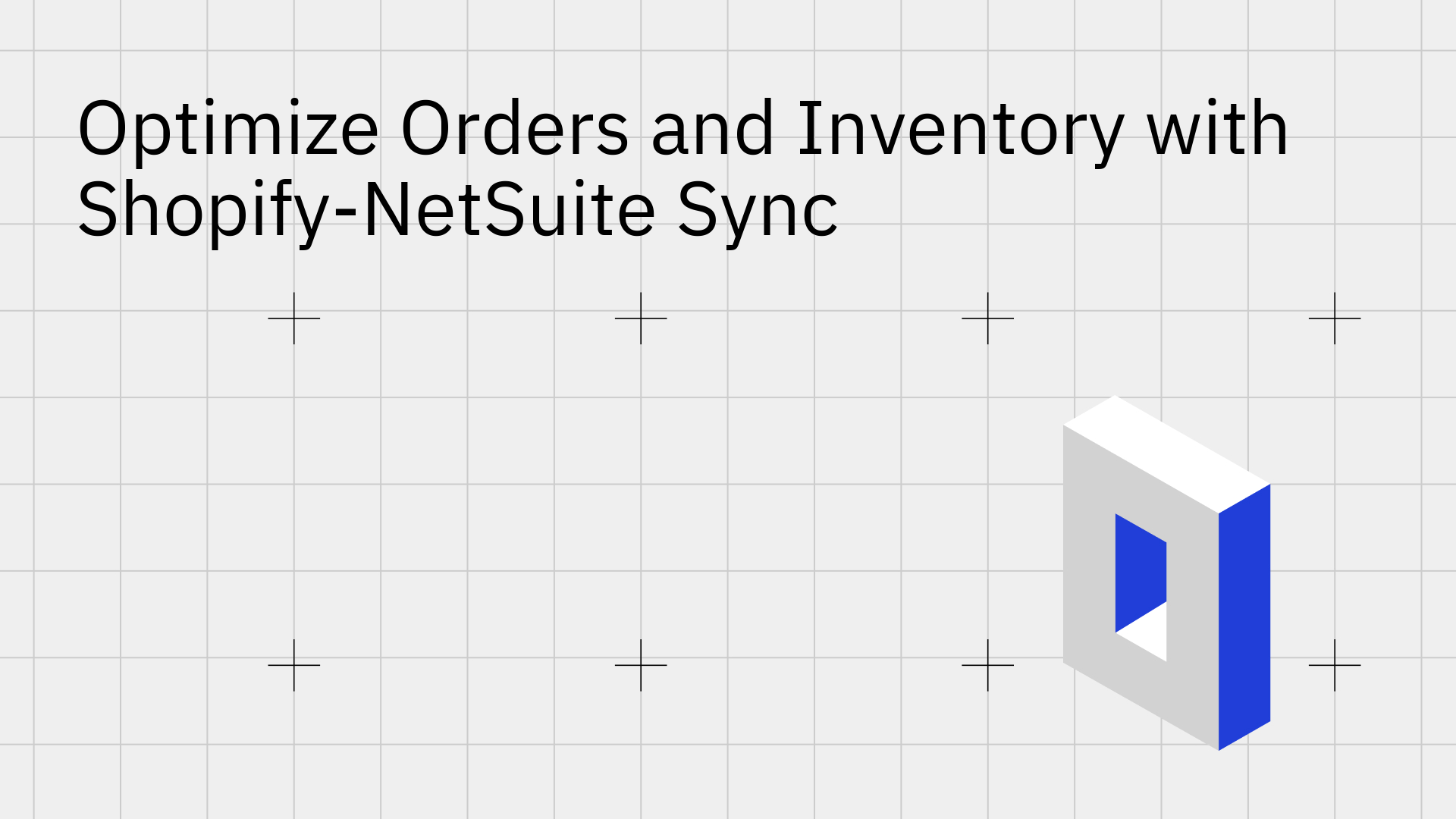
Connecting a Shopify web store with Oracle NetSuite ERP is a critical step for automating e-commerce operations. However, achieving a seamless, real-time, and reliable data flow presents a significant technical challenge. Manual data entry, batch processing from generic iPaaS solutions, and brittle custom-coded integrations lead to data latency, fulfillment errors, and inventory discrepancies. These inefficiencies directly impact customer satisfaction and operational costs.
Stacksync provides a purpose-built data synchronization platform engineered to solve this problem. It delivers a dedicated netsuite shopify integration that ensures guaranteed data consistency and real-time performance, empowering businesses to automate and scale with confidence.
The manual transfer of order and customer data from Shopify to NetSuite is a primary source of operational inefficiency. This process is slow, error-prone, and cannot keep pace with a growing business, leading to delayed fulfillment and inaccurate customer records.
A robust integration automates this entire workflow. Orders placed on Shopify are instantly created in NetSuite, generating new customer records as needed. Stacksync elevates this by providing true, bi-directional synchronization. It captures order edits, processes cancellations, and syncs refunds back to Shopify in real time. This ensures fulfillment details are always accurate, and customers receive immediate updates, dramatically improving the post-purchase experience.
Selling out-of-stock products is a critical failure point for e-commerce businesses, eroding customer trust and creating complex back-office exceptions. This typically occurs when inventory levels are not synchronized in real time between the ERP (the source of truth) and the e-commerce platform.
Stacksync eliminates this risk by providing real-time, bi-directional inventory synchronization between NetSuite and Shopify[1]. Inventory levels can be updated in milliseconds, ensuring that stock levels on Shopify are always accurate. This prevents overselling and provides reliable data for real-time dashboard analytics and low-stock notifications, enabling proactive inventory management across multiple warehouse locations[2].
Maintaining consistent product information—including details, pricing, images, and stock status—across NetSuite and Shopify is a laborious task when performed manually. Inconsistencies lead to a poor customer experience and pricing errors that can damage revenue and brand reputation.
Automating the product feed is essential. A powerful netsuite shopify integration synchronizes product data from NetSuite to Shopify, ensuring all listings are accurate and consistent. Stacksync manages the entire product lifecycle, syncing item types, kits, custom fields, and pricing updates. This helps ensure that the NetSuite catalog remains the single source of truth, with all changes reflected on the Shopify webstore automatically.
Reconciling Shopify payout reports with financial records in NetSuite is a critical but often manual accounting process. This can delay financial closing and obscure cash flow visibility, making it difficult to identify payment discrepancies.
An integrated system automates the downloading and processing of payout reports from Shopify directly into NetSuite. This streamlines cash flow management and automatically flags discrepancies between processed payments and bank deposits. By automating the data transfer between systems, Stacksync enhances financial accuracy and operational efficiency.
For businesses with an omni-channel strategy, integrating Shopify POS sales into NetSuite is crucial for maintaining a unified view of operations. Failure to sync POS orders in real time leads to fragmented sales data, inaccurate inventory, and a disjointed customer experience.
A comprehensive integration must process omni-channel sales orders without delays. Stacksync supports Shopify POS Pro features, including "Buy online, pickup in store" and "Buy in store, ship to customer"[2]. By syncing POS orders to NetSuite in real time, it provides a single, consolidated view of all sales and inventory data, regardless of the channel.
To effectively connect netsuite with shopify, a synchronization platform must manage the bi-directional flow of all critical data entities. Stacksync provides comprehensive coverage, ensuring seamless automation across your entire operation.
While many solutions claim to connect netsuite with shopify, most are either rigid, one-size-fits-all connectors or complex iPaaS platforms that introduce unnecessary overhead and latency. These alternatives may lack the reliability, performance, and flexibility required for mission-critical e-commerce operations.
Stacksync is a purpose-built synchronization platform engineered for enterprise-grade performance and reliability. It offers significant technical advantages over other methods:
A standard netsuite shopify integration is an effective way to improve operational efficiency, but scaling businesses often have unique and complex requirements that "out-of-the-box" solutions cannot meet. Relying on rigid connectors or custom code can create technical debt and operational bottlenecks that inhibit growth.
Stacksync is designed to overcome these limitations. It provides the power to customize your integration to achieve maximum potential without the fragility of custom code. By specializing in high-performance, bi-directional synchronization, Stacksync empowers e-commerce businesses to transform their sales, accounting, and ERP tech stacks into a seamlessly integrated, strategic asset.